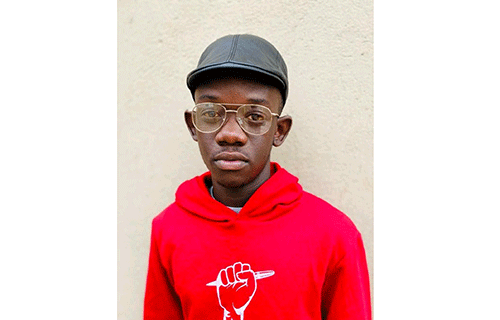A response to Bonifatius Uugwangwa’s ‘The future of English in the Omusati region’
One of the significances of academic discourse is that it enables us to exchange views and ideas about pertinent issues affecting our societies and, in the end, find solutions to these issues.
This article is a response to the views expressed by my colleague, a fellow student at the University of Namibia, Bonifatius Uugwanga, in his article that was featured in The Namibian newspaper on Tuesday, 8 May 2024, titled ‘The future of English in the Omusati region’.
In no way does this article seek to mock or downplay the views of Uugwanga. In fact, his submissions are worth considering.
In every corner of the globe, all languages function as key components of not only linking the human race to one another, but as a crucial tool for maintaining and/or upholding the different cultural and religious norms of a specific people of a specific language.
The English language is no exception. It also, in many ways, upholds the cultural or religious principles of its first speakers.
Anybody who then seeks or attempts to transform themselves through languages that are not theirs, is likely not to triumph on all fronts.
In my language (Oshiwambo), there is an idiom ‘Iitunda yaantu kayi lalwa; Iilongo yaantu kayi likolwa omatanga’. This loosely translates to: You do not seek refuge, nor do you demand benefits or expect to be successful in other people’s countries.
To relate this to our situation with the English language, we should say that you do not seek refuge in other people’s languages after failing to develop and advance yours, nor do you expect to succeed (in this context, perform well academically) in other people’s languages even if you practise a million times.
I firmly believe that the “challenges” that many school-goers, particularly those who live in rural areas, and everyone else encounter with the English language are not necessarily a result of the lack of the necessary facilities and equipment for mastering the language – but of course, they contribute to the problem.
I believe the real issue is our fundamental connection to the English language, and how we can connect it to our cultural values, norms and principles, which, in the end, are what define us, as African people: what we do, how we do it, how we perceive it, how we speak, etc.
This is what then brings us to the “challenges” that Uugwanga has highlighted in his article.
He claims that “teachers also play a role in this, as some of them resort to using their vernaculars during English instruction”.
What does this say about this whole issue?
These are people who went to colleges or universities, and the assumption is that they have been exposed to the English language at length.
What is prompting them to use their vernaculars during English lessons?
These and many other questions will assist us in critically analysing and understanding the issue at hand.
We can purchase as many English novels as we can, build as many libraries as possible and offer all forms of support, but if we (English second language speakers) are unable to relate or link it with our daily norms and principles, we will surely not succeed in this endeavour.
About time
These generational “challenges” that we face with the English language should compel us to go to the drawing board.
This is not to figure out new ways on how to best deal with English and its “challenges” but to go there, and explicitly point out the real issue, which is our failure to fully develop and/or standardise our languages.
While we then attempt to explore the best ways of dealing with the English language, I believe we should, in the same vein, fully develop and/or transform our local languages – the languages of our ancestors, which we can connect or relate to, so that we also use them as mediums of instruction in our schools, colleges and universities.
This will greatly assist us in fully comprehending our academic programmes or activities so that parents in both rural and urban areas can assist their children with their homework, and offer the necessary and much-needed support to their children because they can grasp what is being said or asked.
As Nelson Mandela once remarked, “It always seems impossible until it’s done”.
Through these ways, and many others, I believe we can make significant transformational strides in our quest to achieve our academic goals, and those of generations to come.
*Onesmus Shekuza Iyambo is a student at the University of Namibia, majoring in languages. He is a staunch advocate for reviving, revitalising and restoring African languages. The views expressed herein are entirely his own.


